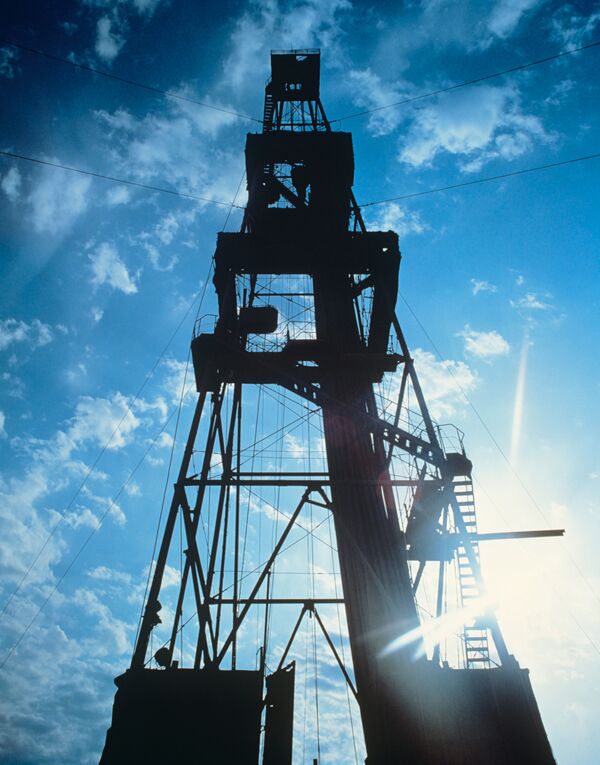Ismail Agakishiev, PhD in History, Associate Professor at the History Department of Moscow State University and the Russian State University for the Humanities.
Hello, Mr. Agakishiev.
Hello.
The recent gas conflict with Belarus – and please correct me if I’m wrong - was quite mild. We have become accustomed to more dramatic developments - to protracted gas wars with malicious countries that refuse to pay. Does this mean that the era of dramatic gas conflicts is now a thing of the past?
You know, I think there is too much unnecessary political speculation about these economic contracts, which clearly spell out the rights and obligations of the parties. This is due primarily to the fact that energy is the foundation for economic development. Energy shortages are felt by every family, every apartment, and every home.
Another problem is that the media, for some reason, do not always properly explain problems related to energy supplies. In reality, energy supplies are a matter of contractual obligation, first and foremost, which the parties must fulfill. Otherwise it would be impossible to ensure the implementation of programs that are stipulated in international contracts and are binding both for the suppliers and buyers.
You are an expert in the field of energy, and one of your recent works deals with precisely this subject. In your opinion, what presents the greatest danger for energy supplies?
You know, there is always an element of danger, and not just when it comes to energy supplies. We face danger everywhere. Even when we get up in the morning, we don’t know if we are going to live through the day. Anything can happen in the course of a day. Clearly, there are always dangers when it comes to energy.
The delivery of gas or oil through a pipeline is inherently complex, and it comes with a certain degree of risk. For example, there is the landscape of the territory through which the pipelines are laid. This must also be taken into account. But to be clear, for the most part these risks are exaggerated by journalists and politicians.
The reality is that the main danger lies in the fact that the world is extremely dependent on traditional sources of energy. They have become the foundation of the modern economy. But these resources are limited, especially oil. Therefore, we must find alternative sources of energy.
Getting back to the issue of pipeline routes: whether we’re talking about the Baku-Novorossiysk route, Baku-Supsa, Baku-Ceyhan, or gas supplies from Central Asia and Kazakhstan - all of these pipelines run through regions where there is political instability or even armed conflicts. In Russia, there was a conflict in Chechnya in the early 1990s. Disagreements have recently resurfaced between the Turks and Kurds, there is instability in Georgia…
And in Karabakh.
Yes. At one point the possibility of creating a pipeline through Karabakh was discussed with the former president of Armenia, Levon Ter-Petrosyan. Had they managed to reach an agreement on this issue, it would have provided an excellent opportunity to settle the Karabakh conflict once and for all. A pipeline through Armenia would have been one of the most effective and least costly routes.
The presidents of Azerbaijan and Armenia, Heydar Aliev and Levon Ter-Petrosyan, had an excellent opportunity to solve two regional problems at once: the protracted Nagorno-Karabakh conflict and the economic problems of Armenia, Azerbaijan, and the region as a whole. However, the opposition in Armenia, the so-called party of war, which was actively seeking power at the time, was not interested in a deal.
The assassination of Karen Demirchyan, patriarch of Armenian politics, forced President Ter-Petrosyan to resign, clearing the way for the party of war to take power and nip the plans for a pipeline in the bud. Armenia had a real opportunity to become a major oil and gas transit country for Europe and to play an active role in this field.
This is a case where politics got in the way of economic development.
Yes, absolutely right. The same goes for the construction of a less expensive pipeline through Iran, where strong U.S. opposition killed the project. Washington blocked it.
You mentioned the need to find alternative sources of energy. How soon should we start worrying about this? When will the oil and gas run out? I’ve heard that there is enough for about another 100 years.
Well, some experts are optimistic and say that the current reserves will last for many years to come, and if necessary even more reserves can be found. But there is another view, which I wouldn’t call pessimistic so much as realistic. Everything has its limit and sooner or later everything comes to an end, including oil and gas. And we need to be prepared for this. In my opinion, we should have started looking for alternative sources of energy yesterday. We are very far behind from where we need to be.
Is Russia falling behind or the world as a whole?
No, human civilization. After all, the energy resources that are the foundation of today’s economy also played a huge role in the formation of our civilization. We should acknowledge - while at the same time not exaggerate - the fact that Europe’s prosperity is underwritten in part by gas from Algeria, Norway and, of course, Russia. It would be no exaggeration to say that without this gas, Europe’s economy would not have reached its current level of development.
Mr. Agakishiev, thank you for sharing your time and your thoughts.
Thank you.



